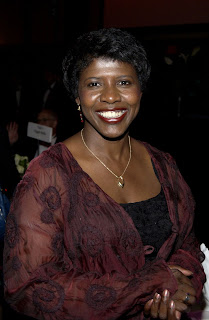Being able to express oneself through writing is something that has been valued in the United States for a long time. Thanks to the First Amendment under the Bill of Rights, which protects US citizens and states from the federal government, the people of the US have the freedom and right to speak out and express themselves, especially through writing. It is because of those rights that Journalism was born.
Since the Founding Fathers, Journalism has been a profession that has richly developed over time. Around 1776, as America was sorting out its government, different political parties began to form and gain popularity. Each party had its own ideals, purposes, and goals that were meant to be shared with others, so the partisan press, which was what journalists were called, helped with the spread of political information using persuasive language.
Because the public’s opinion is important in politics, each political party had press that they would financially support to promote their party, and bring down others. The press, or journalism, was less about objectivity and was more utilized as a tool for those who had governmental power.
To help spread the ideas of the partisan press, in the 1830s, technological advancements of paper and printing occurred which gave way to the penny press. The penny press was a cheaper and more functional type of paper that allowed the writing of the journalists of the day to spread their ideas faster and wider.
Additionally, as journalism became more popularized and used as a tool for promotion or the spreading of current events, it also became more commodified. Newspaper owners, called Press Barons, took charge of the partisan press and made journalism more market-driven. This means that subscriptions to specific newspapers, most likely depending on party affiliation, became a thing, along with ads in the hope of getting the most viewers and making the most money.
Press Baron and their corporate mindset aided in ushering in the Professionalization Movement. This movement set up certain standards that journalists were required to work with, called the Codes of Ethics. These Codes of Ethics began the shift that put journalists in more of an objective position rather than a manipulated one. By having a certain standard, it forced journalists to think and write in a more individualistic fashion instead of only being concerned about the party they were working for.
As time progressed, instead of newspapers being owned primarily by one person or an influential family, they were run by more than one person in a more company-like style. In step with the times, in 1851, one of the most well-known and influential newspapers was founded, the New York Times. The New York Times pioneered the way for journalism to press into more topics than politics and obituaries and officially introduced the idea of an objectivity standard.
To bring in as much revenue as possible, newspaper companies began to see the value in presenting straight news to the people. That is to say that journalism would focus on the cold, hard facts about an event, hoping to get viewers from various backgrounds and political standings. In doing so, the code of ethics for journalists became more universal and streamlined, yet strict regarding the position of the journalist. Getting the main aspects of an event was important, but maintaining that middle ground was something that a proper journalist would seek to do.
Journalism became more ambitious in a way since getting the scoop for your respective company was, and still is, important. As a result, amendments like the 15th Amendment, which in-short provides important boundaries for the government and private actors, and the First Amendment, were highlighted in importance for journalists. Those laws allow for a journalist to truly investigate a situation, point out wrongdoings in hopes of finding truth, and be a voice for the people, all while protecting themselves to an extent.
Rightfully capturing a story from an objective point of view and pointing out wrongdoings eventually became an automatic and required aspect of journalism across the US, leading to its golden age. From around 1945 to 1996, it was known as the golden age of journalism because it was a time when journalism was objective, fair, and balanced as journalists went strictly by the codes of ethics and focused on capturing hard news. News outlets like CNN and FOX were initial examples of golden age journalism.
Now, entering the 21st century, journalism seems to be changing from how it was during its heyday. Although some value objectivity, because of the polarized political climate, a return to the partisan press appears to be occurring before the public’s eyes. Highly persuasive news articles are catching more attention than those of apparent equal standing.
Will journalism ultimately always end up divided and manipulated, or is it possible for it to break away from other entities and remain objective? Is this for better or for worse? On one hand, it seems to be up to the public to decide as it popularizes the media it prefers to intake. On the other hand, professional journalists and news outlets have the power to set the record straight and return journalism to its golden age of impartiality.







No comments:
Post a Comment